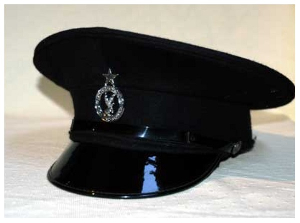In 1997, two junior police officers were arraigned before the Greater Accra Regional Tribunal over a case of stealing.
Constable Fedelix Kwame Yebbi and Corporal Anthony Kwesi Avalifo were brought before the tribunal for allegedly stealing 100,000,000.00 million old cedis (now GH¢10,000.00) belonging to the National Democratic Congress.
According to other details online, the money was said to have been stolen from the house of Dr. Obed Asamoah, then-Attorney General.
Further details said that the two policemen orchestrated the crime within a period of seven months, from September 1997 to April 1998, stealing the money in bits until it added up to 100 million old cedis.
In court, the two officers challenged the authority of the Greater Accra Regional Tribunal to hear their case.
In their argument, they said that "under Article 143(1) of the 1992 Constitution, a regional tribunal has jurisdiction to try such offences against the State and public interest as Parliament may by law prescribe.
But the offences they were facing could not be said to be against the State or public interest since the money involved was admitted to belong to a political party which obviously is not a state institution, neither is the theft of a political party's money, an offence against public interest.
A Regional Tribunal can, therefore, not try such an offence. The prosecution sought to resist the objection by contending that once Parliament has exercised its discretion by enacting in the Court's Act 1993 (Act 459) section 24(1) thereof that a regional tribunal has jurisdiction in all criminal matters, it follows that the tribunal was seised with jurisdiction in the matter.
"But the accused, in reply, submitted that section 24(1) of Act 459 is not consistent with Article 143(1) of the 1992 Constitution and consequently null and void. They supported their contention with the Court of Appeal's decision in CA 16/97: Jonathan Dey vrs. The Republic February 12 1998 (unreported)."
However, the prosecution, after defending its case with case laws from other jurisdictions that support its stance, concluded that the matter delves into national interest.
Details of the case, as published on studocu.com, said that it was eventually established that even though the money the two policemen stole was for the NDC, it involved aspects of the national interest.
"Accordingly, if the NDC alleges that its 100,000,000.00 had been stolen, the members of the party who are owners, therefore, are obviously interested in ensuring that those at fault are brought to book. The very fact that the theft affects directly the members of the party does not mean that no public interest exists in the theft. As already demonstrated, and further held in R. vrs. Sussex Confirming Authority, ex parte Tamplin &Sons Brewery (Brighton) Ltd. (1937) 4 All ER 106 at 112 per Justice Parcq:
"'It is fallacious to say that a condition is not in the public interest, or may not be in the public interest if it is the case that a great many of those persons who constitute the public are not directly affected by it; and it is equally fallacious to say that a condition cannot be in the public interest if a great many members of the public neither know nor care anything about it,'" portions of the ruling said.
Additional information from a report published on GhanaWeb on Thursday, April 13, 2000, stated that the Supreme Court, in a unanimous decision of five to nil, ruled on Wednesday, April 12, 2000, that the Greater Accra Regional Tribunal, hearing the case in which two policemen were charged with stealing 100 million old cedis belonging to the National Democratic Congress (NDC) from the residence of the Attorney-General, Dr. Obed Asamoah, had full jurisdiction to hear the case.
The court, therefore, ordered the two accused persons, Constables Fedelix Kwame Yebbi and Anthony Kwesi Avalifo, to appear before the tribunal on April 18 for proceedings to continue.
The court was constituted by Mr. Justice A. K. B. Ampiah (presiding), Mr. Justice G. K. Acquah, Mr. Justice F. Y. Kpegah, Mr. Justice E. D. K. Adjabeng and Ms. Justice S. A. B. Akuffo.
The ruling became necessary after the regional tribunal referred the case to the court for interpretation, when the accused persons raised an objection that the court had no jurisdiction to hear the case.
The objection was raised on the grounds that the money which was allegedly stolen belonged to the NDC and not to the State, nor was the case of public interest. In its ruling, which was read by Mr. Justice Acquah, the court said the High Court has jurisdiction in all criminal matters, adding that the Courts Act makes provision that the Regional Tribunals have concurrent jurisdiction with the High Court in all criminal matters.
It said the NDC is a political party registered under the Political Parties Law and has satisfied all the conditions set for it to operate as a legal entity in the country even though it is not the State nor the public.
According to the court, although a political party is not the State, everything about it is a matter of public interest. Therefore, stealing money belonging to a political party is of public interest since members of the party have the right to ensure that the perpetrators are brought to book.
The two policemen were on guard duty at the residence of the Attorney General, Dr. Obed Asamoah, in 1997 and allegedly acted to dishonestly appropriate 100 million old cedis which belonged to the NDC and was being kept by Dr. Asamoah for disbursement in respect of party activities.
Mr. Anthony Gyambiby, Principal State Attorney, represented the Republic, while Captain Nkrabeah Effah-Dartey (rtd), an Accra legal practitioner, represented the accused.
AE/SEA
General News of Saturday, 4 May 2024
Source: www.ghanaweb.com

















